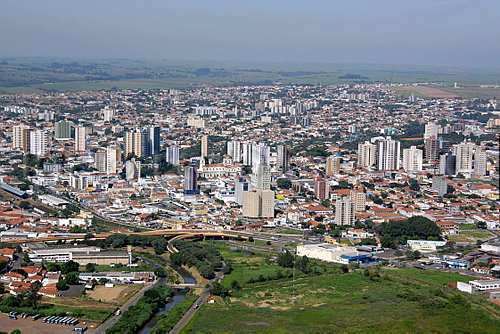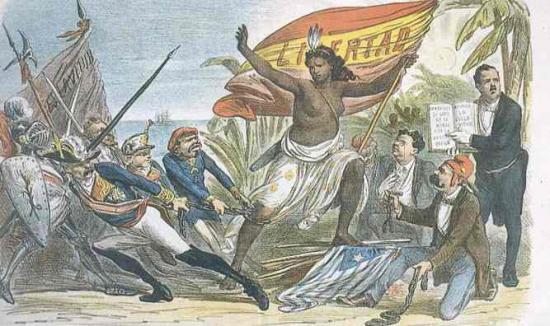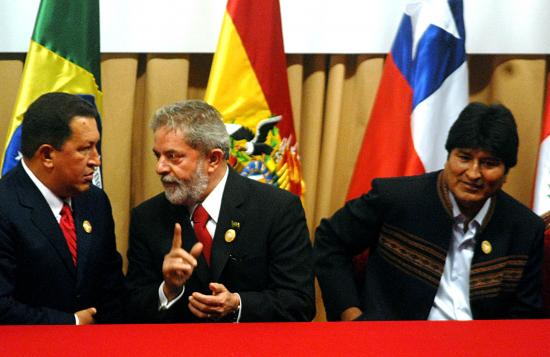There are many things I like in the United States. Stanley Kubrick, John Ford, Alfred Hitchcock, Brian de Palma, Clint Eatwood, Martin Scorcese are some of my favorite film directors. In literature, how could I forget the impact that H. P. Lovecraft, Edgar Allan Poe, F. S. Fitzgerald and J. D. Salinger had in my training? And in music, and especially in good old rock? In that case it would be very difficult to select the singers and bands that I like most (Cramps, DEVO, REM and Nine Inch Nails – yes, I know I have a nonsense taste for music).
But beyond that cultural contribution, there is another even bigger. Inspired in theoretical French, American democracy has become a kind of model in which dozens of other countries were inspired. The ideals of the French Revolution “Equality, Freedom and Fraternity” found the opportunity to be implemented through the American democracy. And now it is time for me to tell the reader, as is now usual: I have no intention of making an academic article, this article is an exercise, a mere attempt to try to explain to readers from other regions of the world a little on anti-Americanism that exists here in South America, especially in Brazil.

Americana – city in Sao Paulo state founded by Americans who fled the American Civil War
And it is precisely this United States’ political and legal model initiated the anti-Americanism here in Latin America. In the 19th century, the conflicts between the United States and Spain began to worry the local elites, because liberal, democratic, progressive Republicans sectors from Spanish colonies began to fight for changes, wishing to build democratic countries, threatening to drastically change the status quo. It was a resistance of old against new.

However, after the United States recovered from the American Civil War, they began to act the same way as England, Spain and France, seeking new markets and forming alliances with local elites to have achieved their goals. Already at the beginning of the 20th century, comes the term “Republic of Banana” to refer to Latin American countries so as pejorative. This expression arose due to the action of companies United Fruit Company and Standard Fruit in Central America.

However, after the World War II, with the decline of the influence of big European nations, the United States began to “invest” heavily here in the region, trying to protect their own interests, costing what cost, because there are varied and abundant natural resources (uranium, oil, gold, etc). The situation worsened after the beginning of the Cold War, because between the 60’s to the 80’s all dictatorships in South America were supported by the United States.

If before the United States encouraged democracy, now were doing the opposite, helping militarily and financially corrupt and bloodthirsty governments. The results of these dictatorships were the deaths of hundreds of thousands on the continent. Besides, increased social inequality and, with the exception of Chile, every country plunged into deep economic crises, the increasing inequality in the distribution of income, stimulating production and trafficking of drugs.
 Protest in Brazil against the military dictatorship in the 70’s
Protest in Brazil against the military dictatorship in the 70’s
That way that the United States found to disturb the economic and social development of countries of South America is part of a plan of preservation of its own hegemony in the region.
But that was two decades ago, something that could gradually be forgotten were it not for some recent actions of the United States. In an attempt to recover the hegemonic position of a few decades ago (position that the United States is slowly losing to Brazil), Bush launched a series of actions very unpopular, and sometimes disrespectful.
Mention only the most important:
– the U.S. military want to install the largest military base (with capacity to house 16 thousand soldiers) in South America in Paraguay, practically on the border with Brazil and Argentina. Two attempts have failed due to Brazil and Argentina’s pressure;
– on January 14, 2003, a plane carrying the U.S. Navy Marines was forced to land at an airport in Rondônia (neighboring state of Amazonas), as it had no authorisation to fly over the Brazilian airspace;
– the reactivation of the Fourth Fleet after the discovery of huge reserves of oil in the Brazilian coast (such reserves can easily exceed 50 billion barrels). In this weekend Brazil is doing a simulation of war involving 12 thousand soldiers to assess the defensive capacity that Brazil has to protect the Blue Amazon”.

It may seem paranoia, but it is not. The South Americans have much reason to fear the Americans than the opposite. This region, as I tried to show up, it was and it is target of the United States’ greed which in recent decades were not really prepared to help the region (unless “to help” is synonymous with “to control”).

This wave of leftist governments in the region is not mere coincidence, is a warning to the United States, an attempt to say that these countries want to be treated as partners and not as subordinates.



